Could Texas Drunk Drivers Be Prohibited From Buying Alcohol?
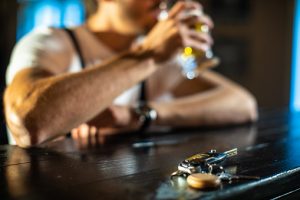 Drunk drivers throughout Harris County, Montgomery County and surrounding areas face many serious criminal penalties when they are convicted of driving under the influence. A criminal record can limit future job opportunities. The temporary suspension of a license can make it difficult to fulfill personal, professional and family obligations. The record of the DWI can raise insurance costs for years to come, and the fines and costs from the trial and penalties can be financially devastating.
Drunk drivers throughout Harris County, Montgomery County and surrounding areas face many serious criminal penalties when they are convicted of driving under the influence. A criminal record can limit future job opportunities. The temporary suspension of a license can make it difficult to fulfill personal, professional and family obligations. The record of the DWI can raise insurance costs for years to come, and the fines and costs from the trial and penalties can be financially devastating.
These consequences are very harsh for someone who may have just had a momentary lapse in judgment or made a simple mistake and who was convicted for impaired driving as a result. Yet, even with DWIs carrying such stringent penalties, a DWI defense lawyer knows that lawmakers regularly take steps to come down even harder on drunk drivers. In part, this is because of intense pressure from public advocacy groups like Mothers Against Drunk Driving.
Whatever the motivation, lawmakers in one state are considering imposing draconian restrictions unlike any that currently exist.
Could States Prevent Drunk Drivers From Buying Alcohol?
According to Fox News, a senator in Oklahoma has introduced a bill that would give judges the authority to impose and enforce alcohol restrictions on people as a consequence of impaired driving charges. Senate Bill 30 requests that procedures be developed to require drunk driving offenders to refrain from buying or even consuming alcohol for a period of time that is up to the discretion of the judge.
There are currently no laws anywhere the country imposing a blanket prohibition on any group’s right to consume alcohol after reaching the legal drinking age of 21. There are significant questions about whether this proposed law would even be constitutional. There are also practical enforcement questions. For example, would restaurants be allowed to serve food that had alcohol in it to someone who had been convicted of drunk driving, or would a DUI offender still be able to take communion or participate in religious ceremonies that involve alcohol?
The bill does not spell out answers to these questions. The proposed law sets forth the general guidelines for how the prohibition would work. DWI offenders would be required to order and use a replacement identification that had the words “Alcohol Restricted” printed on its front. As a result, when people have to show ID to buy alcohol, the clerk would be alerted that the buyer was not allowed to make the purchase. The law also specifies that if someone was caught buying alcohol for anyone that he or she knew was alcohol restricted, that person could face felony charges. Penalties could include up to a year of jail time and up to $1,000 in fines.
If Oklahoma does pass this law, it will apply only in-state and won’t directly affect Texans. However, other states could adopt similar laws if Oklahoma leads the way. This would significantly curtail the rights of people who have faced drunk driving charges.
Call Joseph LaBella & Associates today at 800-395-5951 or visit www.texas-dwi-lawyers.com to speak with a Houston DWI defense lawyer. Serving Harris County, Montgomery County, and communities along Interstate 45 through The Woodlands and Conroe.






 In Harris County, Montgomery County, Houston and the entire state of Texas, drivers give implied consent when they get behind the wheel. Essentially, this means they have given their permission for law enforcement to test their blood-alcohol concentration. Police cannot just test your BAC whenever they want to, though. They will need to have probable cause or a reasonable suspicion that you have consumed too much alcohol to be safely behind the wheel.
In Harris County, Montgomery County, Houston and the entire state of Texas, drivers give implied consent when they get behind the wheel. Essentially, this means they have given their permission for law enforcement to test their blood-alcohol concentration. Police cannot just test your BAC whenever they want to, though. They will need to have probable cause or a reasonable suspicion that you have consumed too much alcohol to be safely behind the wheel.
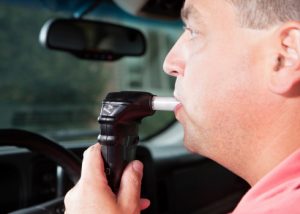 In the state of Texas, drivers who have two or more drunk driving convictions over a period of five years are required to install an ignition interlock device in their vehicles. Drivers who are arrested for a first offense must also have an ignition interlock device installed on cars that they own. Motorists must pay for the cost of the ignition interlock device. The device typically must remain on a vehicle for at least one year following the period when a license is suspended.
In the state of Texas, drivers who have two or more drunk driving convictions over a period of five years are required to install an ignition interlock device in their vehicles. Drivers who are arrested for a first offense must also have an ignition interlock device installed on cars that they own. Motorists must pay for the cost of the ignition interlock device. The device typically must remain on a vehicle for at least one year following the period when a license is suspended. If you are charged with driving impaired and your blood-alcohol concentration is over-the-limit in Texas, it may seem difficult to mount a defense. After all, the science says that you are too impaired to be safely on the roads.
If you are charged with driving impaired and your blood-alcohol concentration is over-the-limit in Texas, it may seem difficult to mount a defense. After all, the science says that you are too impaired to be safely on the roads. Football is a much beloved sport in Texas, but many people drink and drive during football season and police know it. Studies have shown that the number of arrests for alcohol offenses increases during football season. It is routine for Texas law enforcement officers to be aware of big game days, especially Super Bowl Sunday, and to increase enforcement in order to catch people who may be driving while intoxicated.
Football is a much beloved sport in Texas, but many people drink and drive during football season and police know it. Studies have shown that the number of arrests for alcohol offenses increases during football season. It is routine for Texas law enforcement officers to be aware of big game days, especially Super Bowl Sunday, and to increase enforcement in order to catch people who may be driving while intoxicated.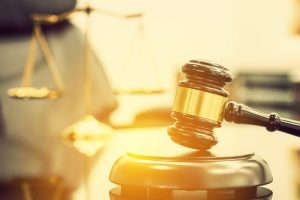 In a drunk driving trial or other criminal case, expert witnesses may testify for the prosecution or for the defense. For example, you may present expert witnesses who will testify about problems with the sobriety tests, while prosecutors may present expert testimony about levels of impairment or accident reconstruction.
In a drunk driving trial or other criminal case, expert witnesses may testify for the prosecution or for the defense. For example, you may present expert witnesses who will testify about problems with the sobriety tests, while prosecutors may present expert testimony about levels of impairment or accident reconstruction. More than 1.2 million people were arrested for driving under the influence in 2011, according to the
More than 1.2 million people were arrested for driving under the influence in 2011, according to the 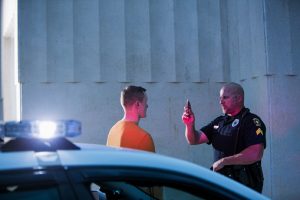 A Texas resident was recently pulled over for a traffic violation, with some reports indicating he ran a red light and other reports indicating he had run a stop sign. When the driver was pulled over, field sobriety tests were administered to determine if he was impaired. The Austin Police Department indicates that the Texas man “swayed,” and “needed his arms for balance,” which were signs of potential impairment caused by either alcohol or drugs.
A Texas resident was recently pulled over for a traffic violation, with some reports indicating he ran a red light and other reports indicating he had run a stop sign. When the driver was pulled over, field sobriety tests were administered to determine if he was impaired. The Austin Police Department indicates that the Texas man “swayed,” and “needed his arms for balance,” which were signs of potential impairment caused by either alcohol or drugs.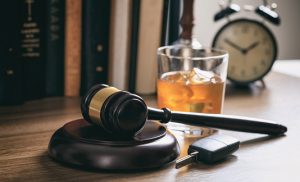 In January 2012, police arrested a man for aggravated trafficking of scheduled drugs. The defendant was convicted and sentenced to seven years of incarceration. This conviction has now been overturned. The reason a judge overturned it: the man did not actually have any scheduled drugs in his possession.
In January 2012, police arrested a man for aggravated trafficking of scheduled drugs. The defendant was convicted and sentenced to seven years of incarceration. This conviction has now been overturned. The reason a judge overturned it: the man did not actually have any scheduled drugs in his possession.
